Publications
A list of selected papers in which research team members participated.
For a full list see below or go to Google Scholar (Jisun An and Haewoon Kwak).
computational journalism
political science
network science
game analytics
AI/ML/NLP
HCI
online harm
dataset/tool
bias/fairness
user engagement
AI/ML/NLP
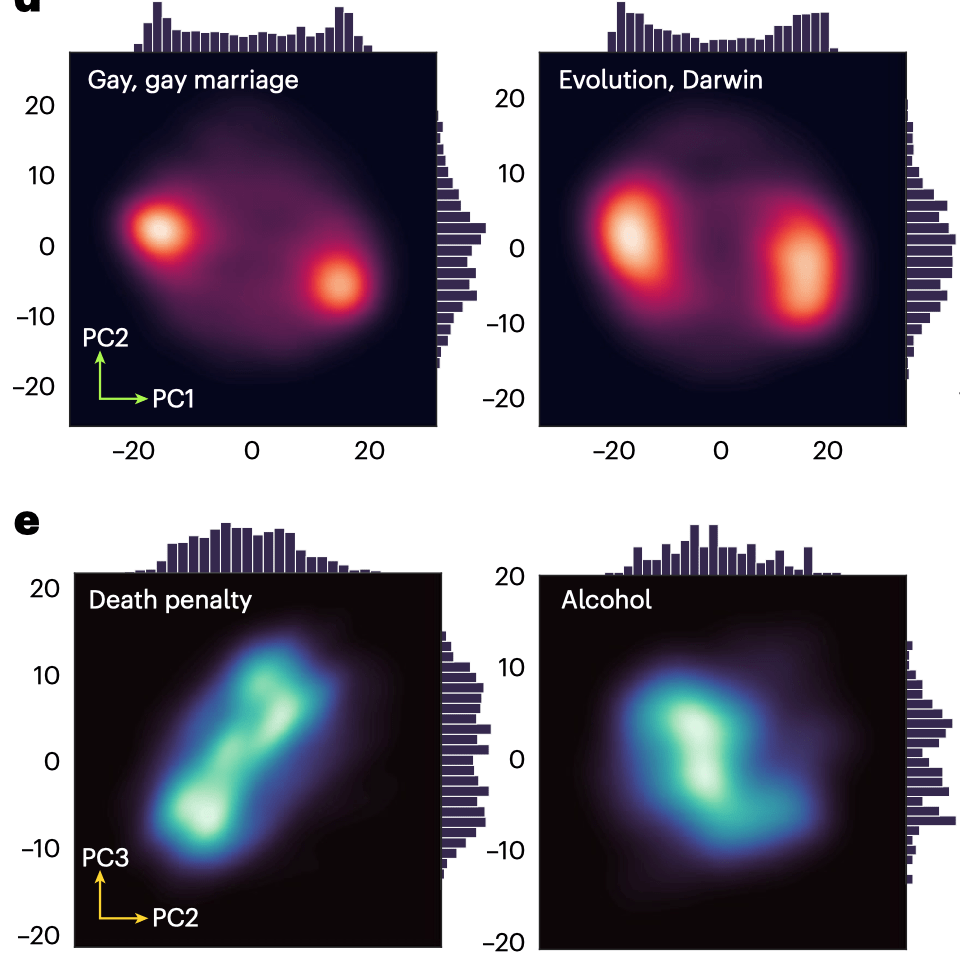
How are our beliefs formed and how do they influence each other? By combining large language models (LLMs) with collective online records of human belief, we created a “map” showing how thousands of beliefs relate to one another. This model allows us to predict a person’s next belief, measure potential cognitive dissonance, and ultimately understand the core principles governing human cognition.
Byunghwee Lee, Rachith Aiyappa, Yong-Yeol Ahn, Haewoon Kwak, Jisun An
Press coverage - Phys.org Featured Article
AI/ML/NLP
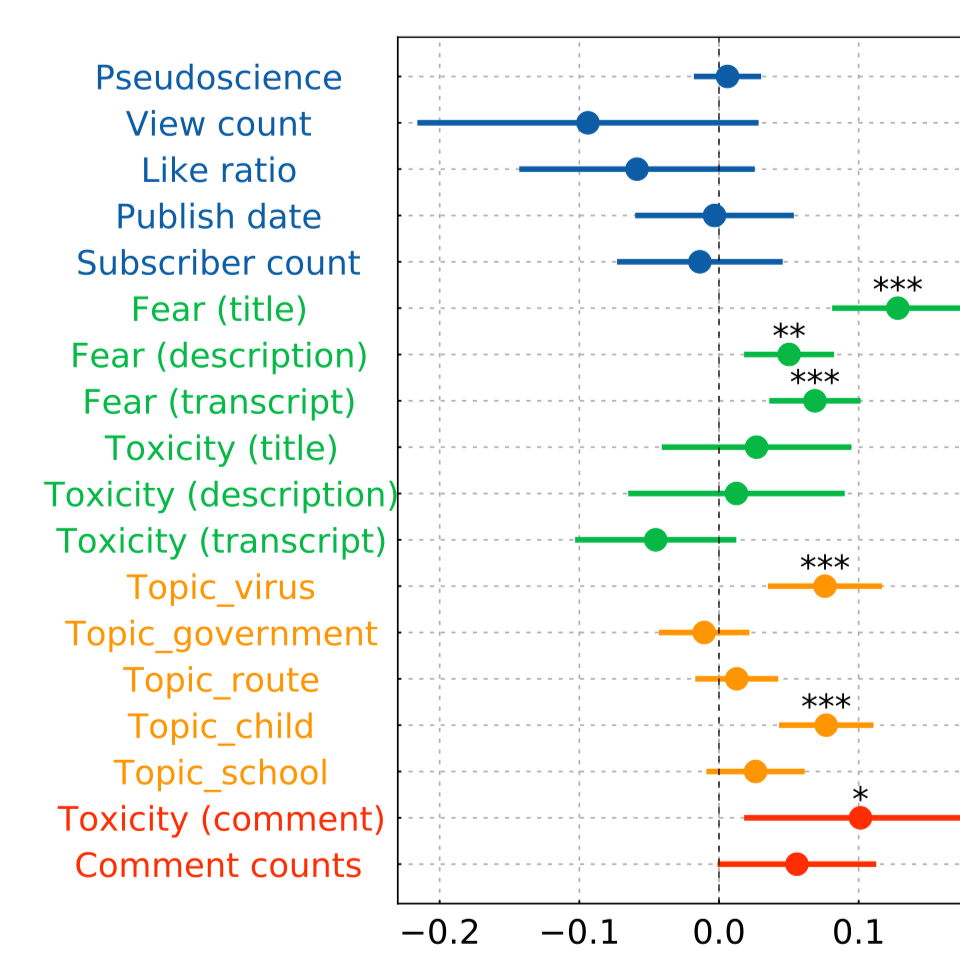
What is the true impact of toxic trolling in the comment sections of anti-vaccine YouTube videos? While it’s widely believed that such comments spread fear and fuel vaccine hesitancy, there has been little empirical evidence to measure this effect. Our latest study tackles this question by analyzing the complex interplay between toxicity and fear across 484 anti-vaccine videos and more than 414,000 of their comments. Using machine learning to score each comment, we found a significant link between the overall toxicity of a video’s comment section and the level of fear expressed within it. More importantly, we discovered a powerful contagion effect; the toxicity of highly liked early comments was significantly associated with a rise in fear in subsequent comments. This influence was also found to be bidirectional, as highly liked fearful comments were linked to an increase in later toxicity.
Kunihiro Miyazaki, Takayuki Uchiba, Haewoon Kwak, Jisun An, Kazutoshi Sasahara
AI/ML/NLP
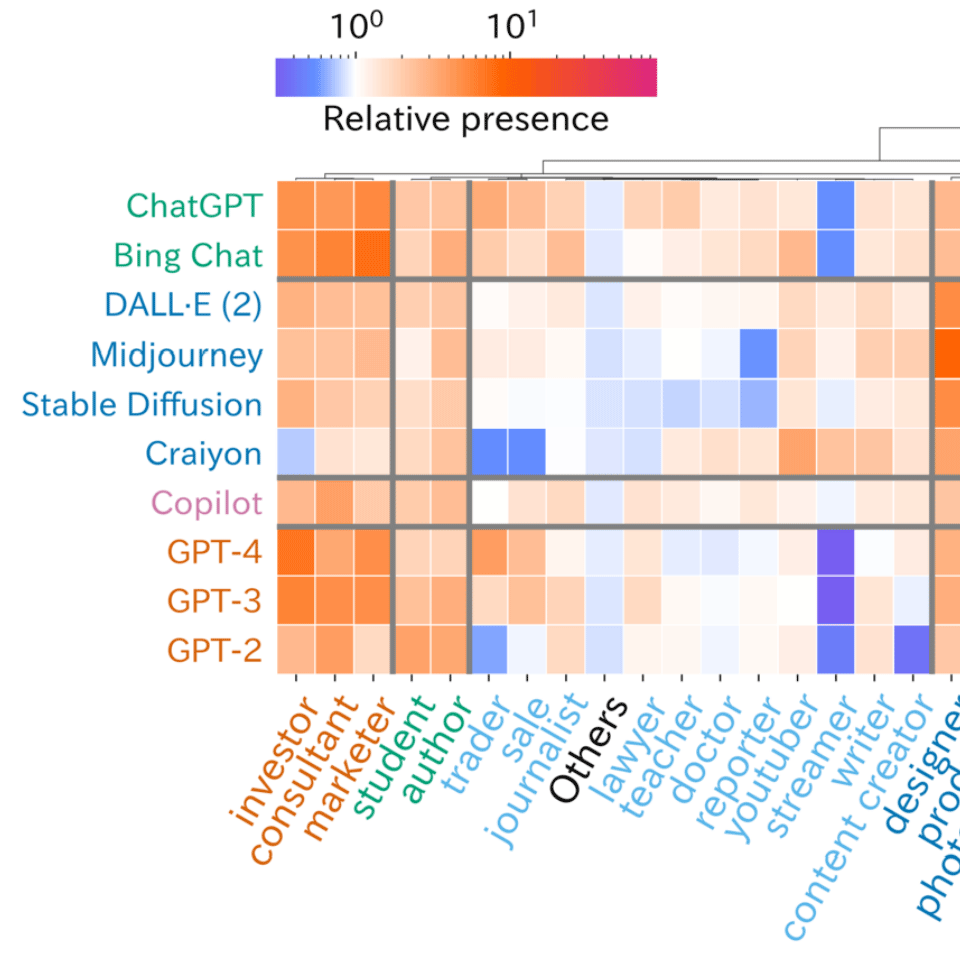
The emergence of generative AI has sparked substantial discussions, with the potential to have profound impacts on society in all aspects. As emerging technologies continue to advance, it is imperative to facilitate their proper integration into society, managing expectations and fear. This paper investigates users’ perceptions of generative AI using 3M posts on Twitter from January 2019 to March 2023, especially focusing on their occupation and usage. We find that people across various occupations, not just IT-related ones, show a strong interest in generative AI. The sentiment toward generative AI is generally positive, …
Kunihiro Miyazaki, Taichi Murayama, Takayuki Uchiba, Jisun An, Haewoon Kwak
Press coverage-Blockchain News
AI/ML/NLP
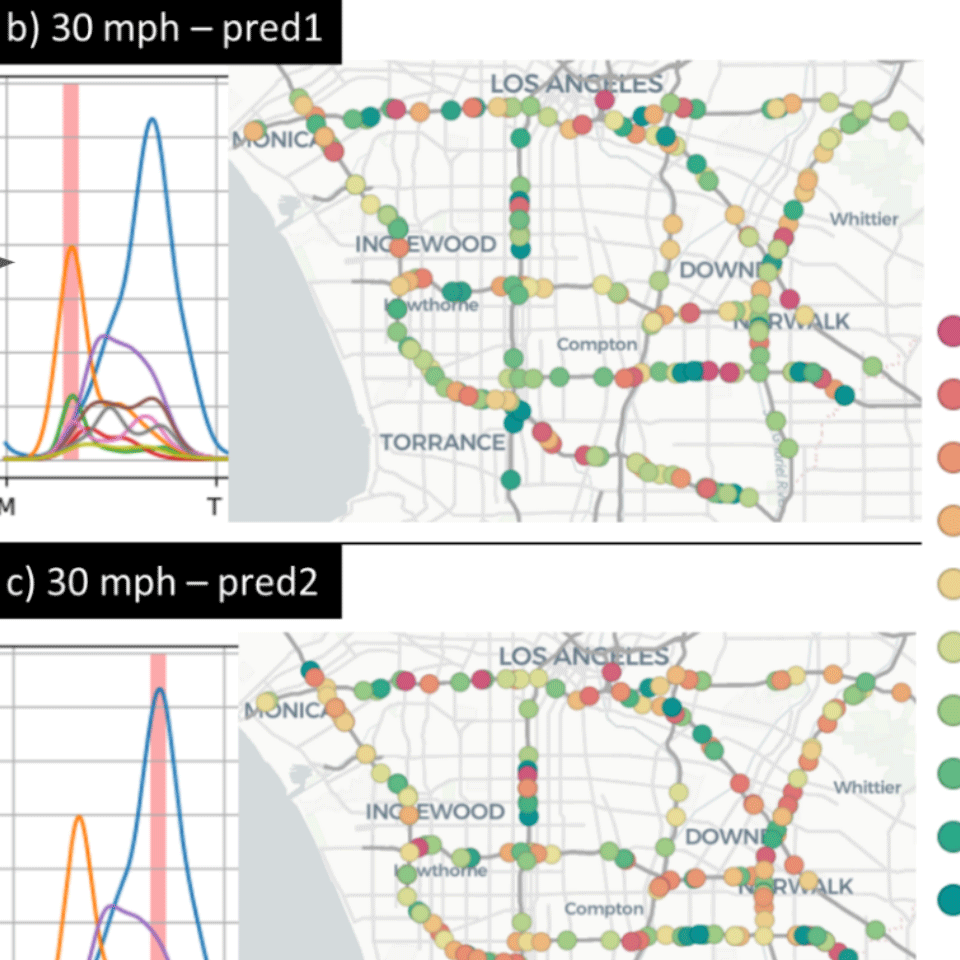
Traffic prediction is one of the key elements to ensure the safety and convenience of citizens. Existing traffic prediction models primarily focus on deep learning architectures to capture spatial and temporal correlation. They often overlook the underlying nature of traffic. Specifically, the sensor networks in most traffic datasets do not accurately represent the actual road network exploited by vehicles, failing to provide insights into the traffic patterns in urban activities. To overcome these limitations, we propose an improved traffic prediction method based on graph convolution deep learning algorithms. …
Sumin Han, Youngjun Park, Minji Lee, Jisun An, Dongman Lee
AI/ML/NLP
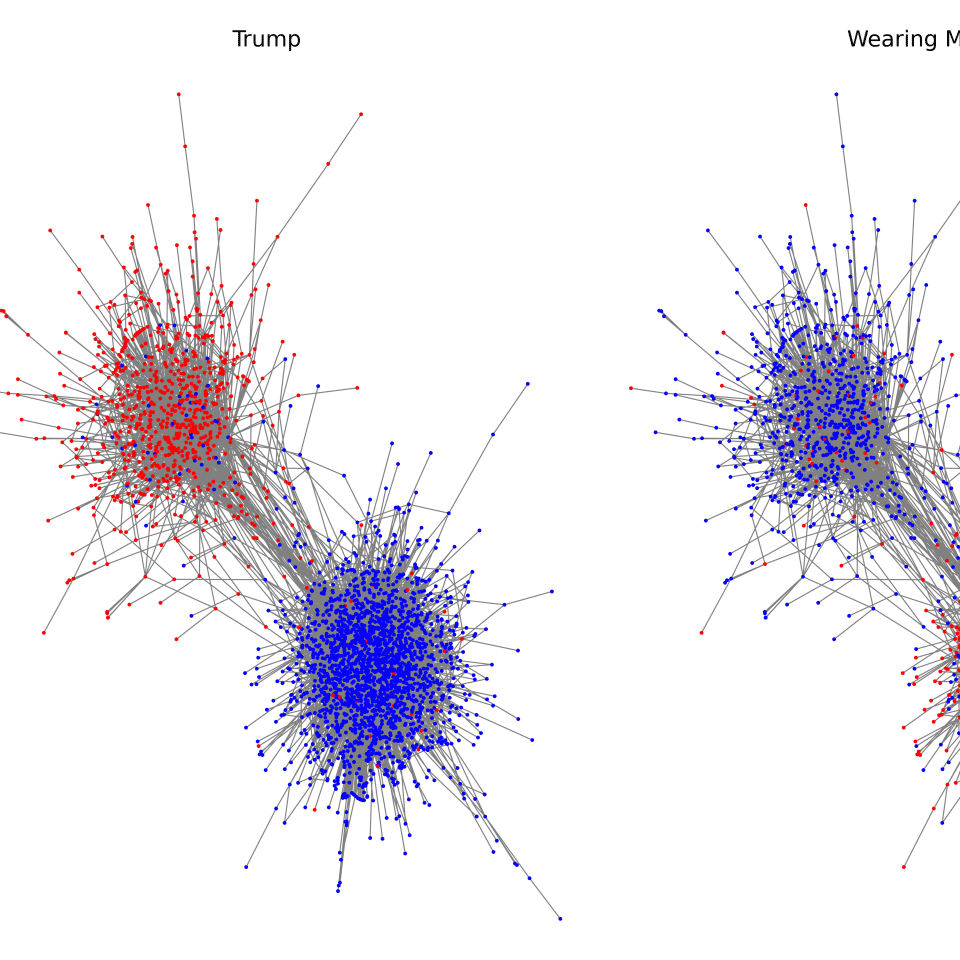
People who share similar opinions towards controversial topics could form an echo chamber and may share similar political views toward other topics as well. The existence of such connections, which we call connected behavior, gives researchers a unique opportunity to predict how one would behave for a future event given their past behaviors. In this work, we propose a framework to conduct connected behavior analysis. Neural stance detection models are trained on Twitter data collected on three seemingly independent topics, i.e., wearing a mask, racial equality, and Trump, to detect people’s stance, …
Hong Zhang, Haewoon Kwak, Wei Gao, Jisun An
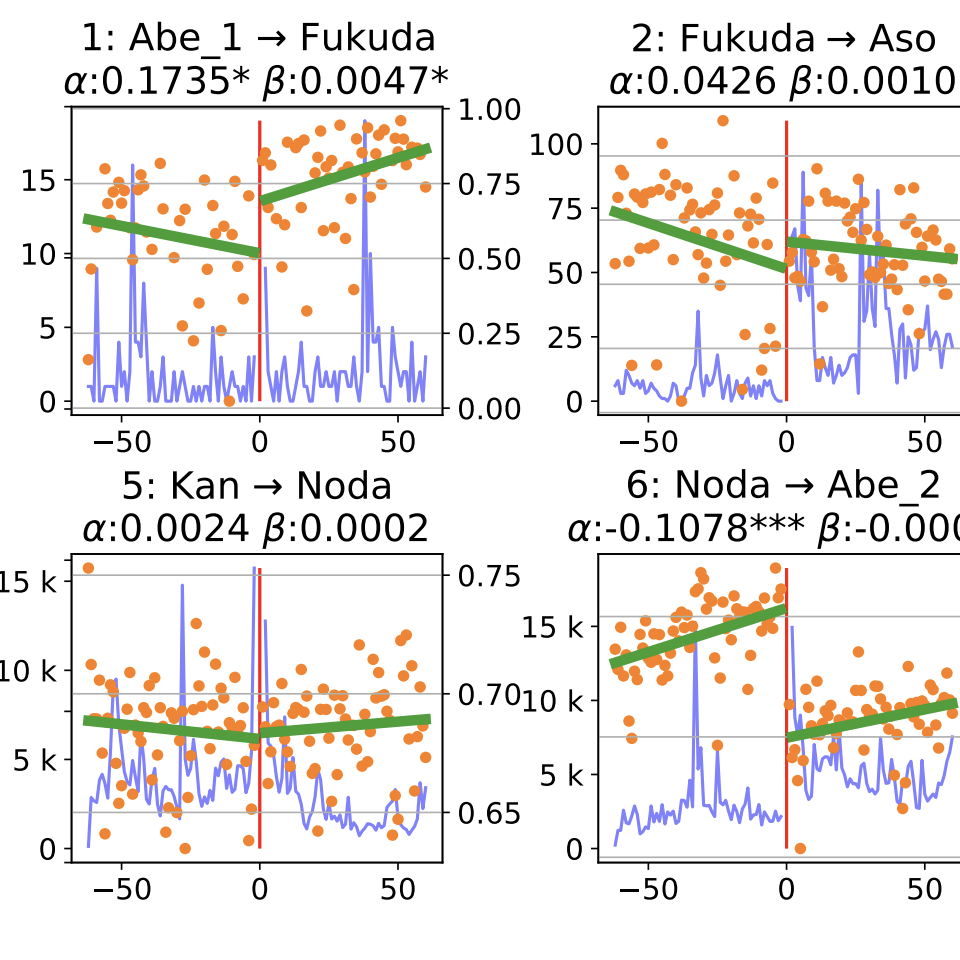
New leaders in democratic countries typically enjoy high approval ratings immediately after taking office. This phenomenon is called the honeymoon effect and is regarded as a significant political phenomenon; however, its mechanism remains underexplored. Therefore, this study examines how social media users respond to changes in political leadership in order to better understand the honeymoon effect in politics. In particular, we constructed a 15-year Twitter dataset on eight change timings of Japanese prime ministers consisting of 6.6M tweets and analyzed them in terms of sentiments, topics, and users. …
Kunihiro Miyazaki, Taichi Murayama, Akira Matsui, Masaru Nishikawa, Takayuki Uchiba, Haewoon Kwak, Jisun An
computational journalism online harm
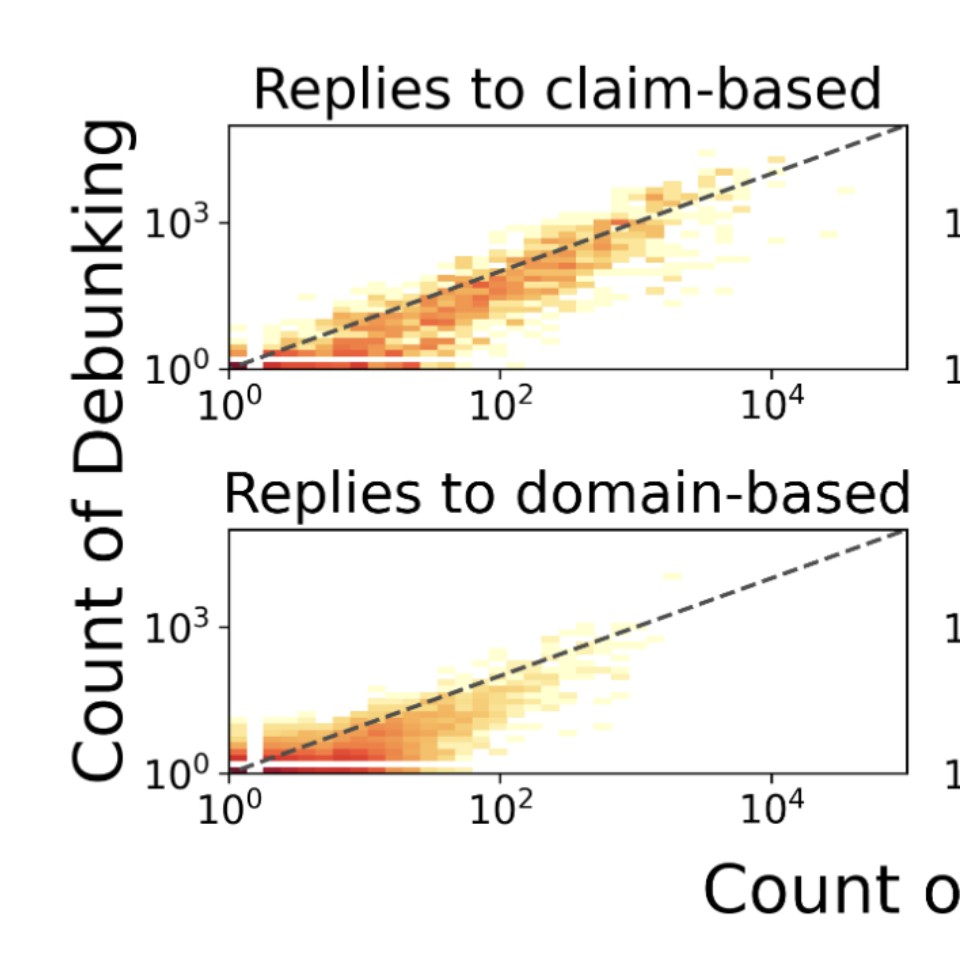
False information spreads on social media, and fact-checkingis a potential countermeasure. However, there is a severeshortage of fact-checkers; an efficient way to scale fact-checking is desperately needed, especially in pandemics likeCOVID-19. In this study, we focus on spontaneous debunk-ing by social media users, which has been missed in exist-ing research despite its indicated usefulness for fact-checkingand countering false information. Specifically, we character-ize the tweets with false information, or fake tweets, thattend to be debunked and Twitter users who often debunk faketweets.
Kunihiro Miyazaki, Takayuki Uchiba, Kenji Tanaka, Jisun An, Haewoon Kwak, Kazutoshi Sasahara
network science
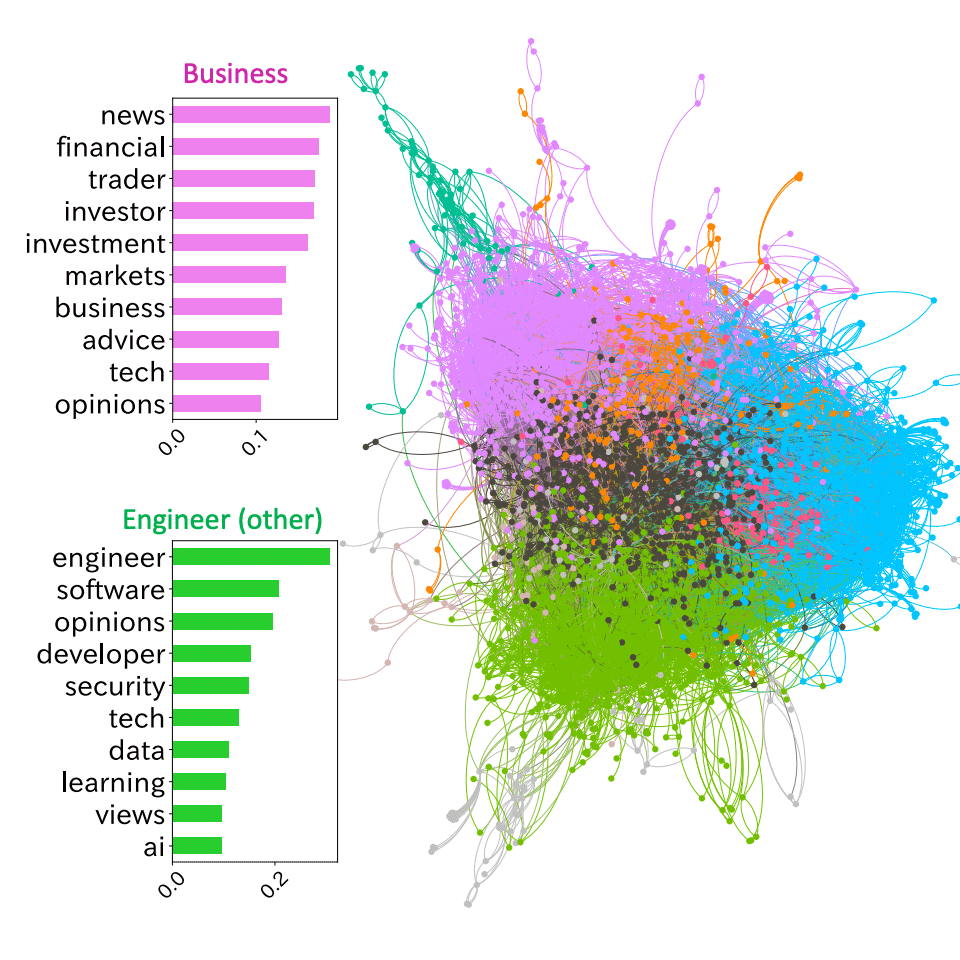
Social media is not only a place for people to communicate on a daily matter but also a virtual venue to transmit and exchange various ideas. Such ideas are known as the raw voices of potential consumers, which come from a wide range of people who may not participate in consumer surveys, and therefore their opinions may contain high value to companies. However, how users share their ideas on social media is still underexplored. This study investigates a spontaneous ideation contest about a generic term for new Big Tech companies, which occurred when Facebook changed its name to Meta. We constructed a comprehensive dataset of tweets containing candidates and examined how they were suggested, spread, and exchanged by social media users. Our findings indicate that different ideas are better on different metrics. The ranking of ideas was not decided immediately after the idea contest started. The first people to post ideas have smaller followers than those who post secondarily or who only share the idea. We also confirmed that replies accumulate unique ideas, but most of them are added in the first depth in reply trees. This study would promote the use of social media as a part of open innovation and co-creation processes in the industry.
Kunihiro Miyazaki, Takayuki Uchiba, Haewoon Kwak, Jisun An
political science network science
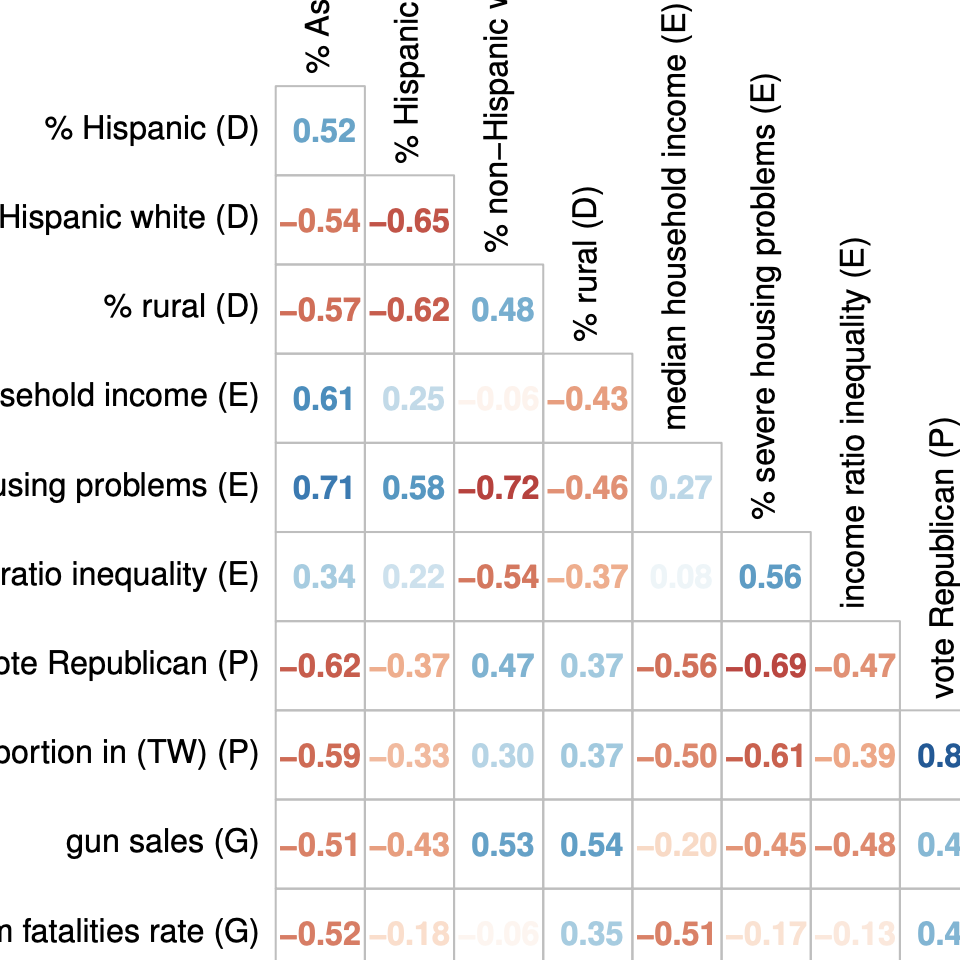
The United States have some of the highest rates of gun violence among developed countries. Yet, there is a disagreement about the extent to which firearms should be regulated. In this study, we employ social media signals to examine the predictors of offline political activism, at both population and individual level. We show that it is possible to classify the stance of users on the gun issue, especially accurately when network information is available. Alongside socioeconomic variables, network information such as the relative size of the two sides of the debate is also predictive of state-level gun policy. On individual level, we build a statistical model using network, content, and psycho-linguistic features that predicts real-life political action, and explore the most predictive linguistic features. Thus, we argue that, alongside demographics and socioeconomic indicators, social media provides useful signals in the holistic modeling of political engagement around the gun debate.
Yelena Mejova, Jisun An, Gianmarco De Francisci Morales, Haewoon Kwak
ACM Transactions on Social Computing, 2022
AI/ML/NLP political science online harm
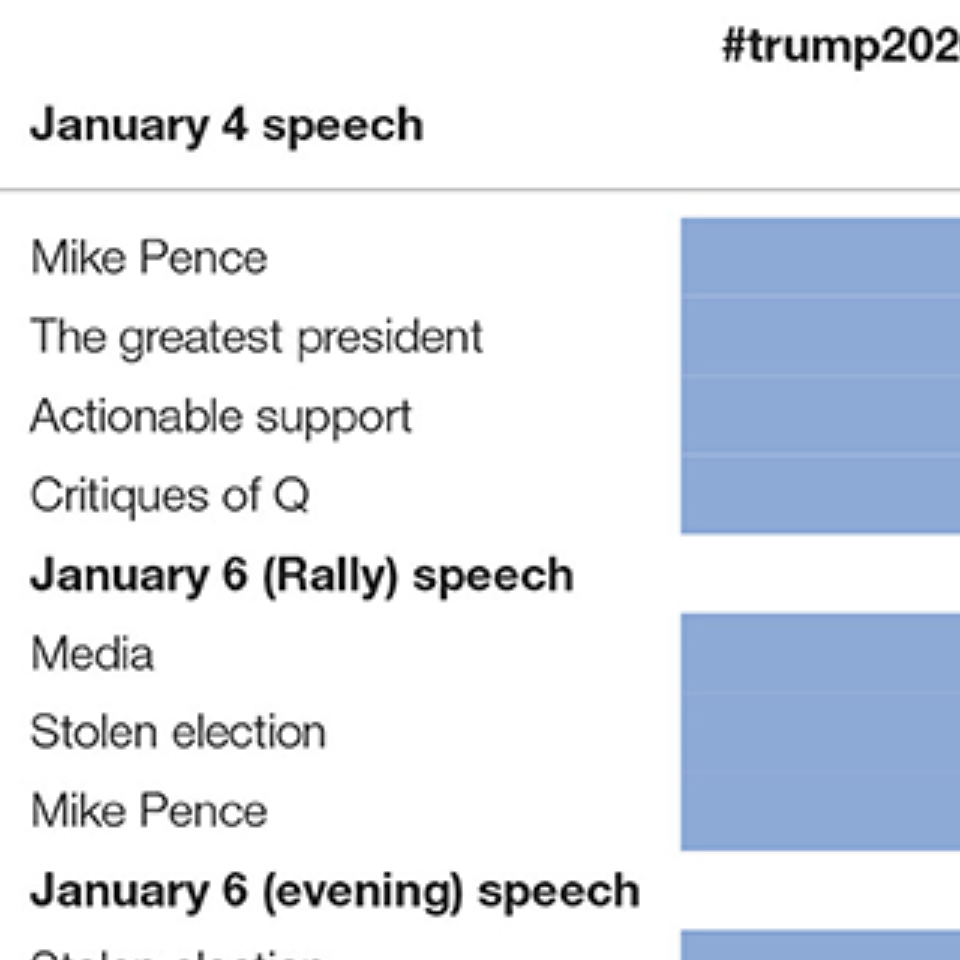
The transfer of power stemming from the 2020 presidential election occurred during an unprecedented period in United States history. Uncertainty from the COVID-19 pandemic, ongoing societal tensions, and a fragile economy increased societal polarization, exacerbated by the outgoing president’s offline rhetoric. As a result, online groups such as QAnon engaged in extra political participation beyond the traditional platforms. This research explores the link between offline political speech and online extra-representational participation by examining Twitter within the context of the January 6 insurrection. Using a mixed-methods approach of quantitative and qualitative thematic analyses, the study combines offline speech information with Twitter data during key speech addresses leading up to the date of the insurrection; exploring the link between Trump’s offline speeches and QAnon’s hashtags across a 3-day timeframe. We find that links between online extra-representational participation and offline political speech exist. This research illuminates this phenomenon and offers policy implications for the role of online messaging as a tool of political mobilization.
Claire Seungeun Lee, Juan Merizalde, John D. Colautti, Jisun An and Haewoon Kwak
Press coverage-PsyPost
AI/ML/NLP online harm
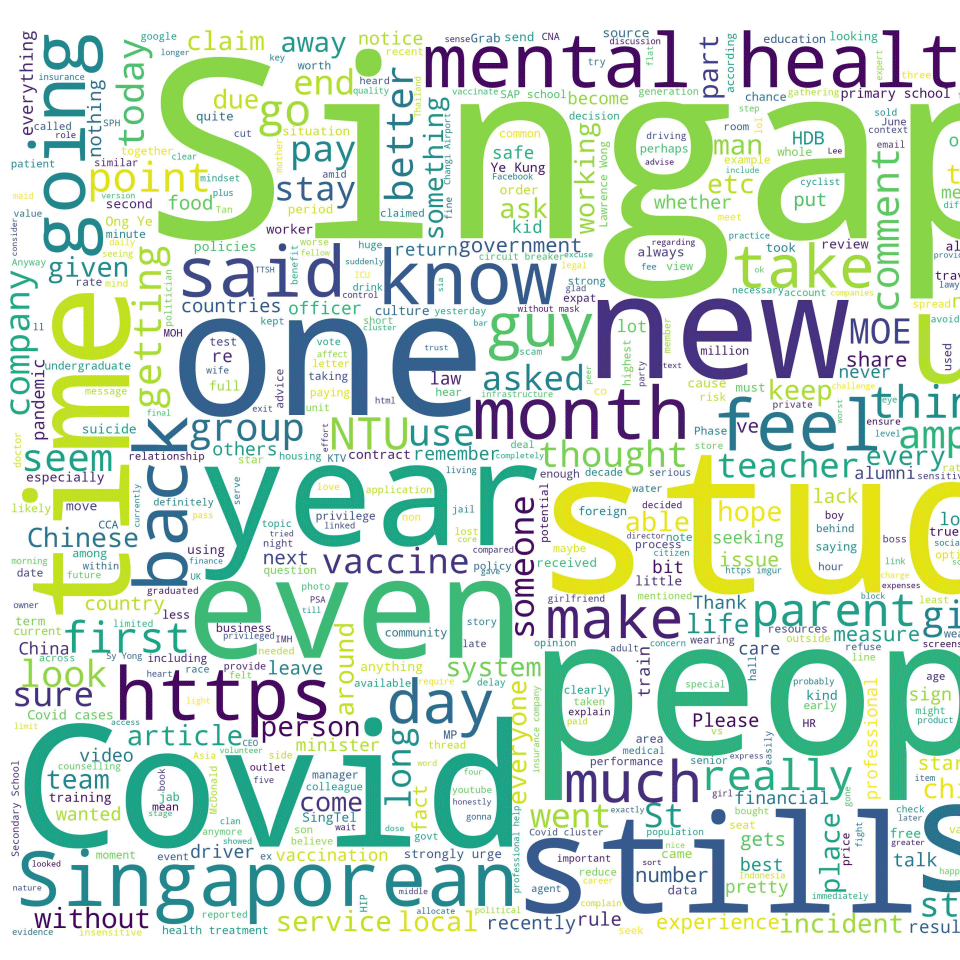
While the contagious nature of online toxicity sparked increasing interest in its early detection and prevention, most of the literature focuses on the Western world. In this work, we demonstrate that 1) it is possible to detect toxicity triggers in an Asian online community, and 2) toxicity triggers can be strikingly different between Western and Eastern contexts.
Yun Yu Chong, Haewoon Kwak
Proceedings of the 16th International AAAI Conference on Web and Social Media (ICWSM), 2022 (short)
Press coverage-AI Ethics Brief Newsletter by Montreal AI Ethics Institute
AI/ML/NLP online harm
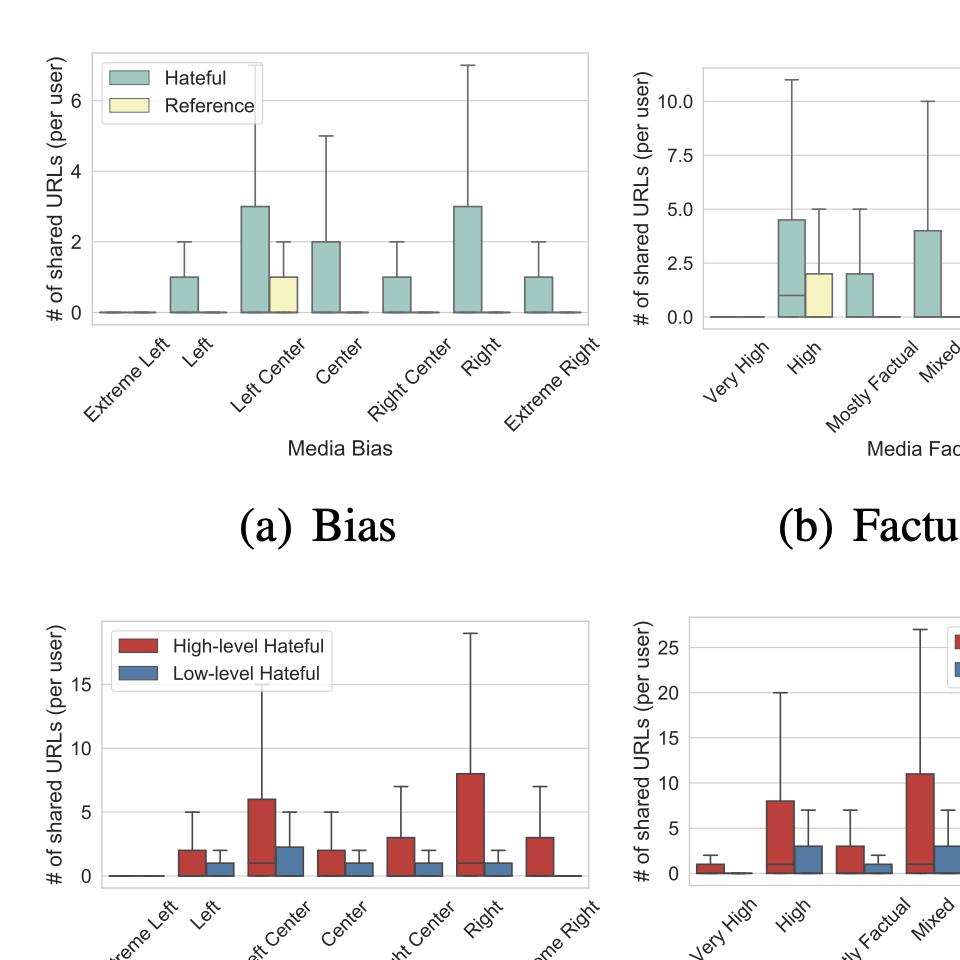
We investigate predictors of anti-Asian hate among Twitter users throughout COVID-19. With the rise of xenophobia and polarization that has accompanied widespread social media usage in many nations, online hate has become a major social issue, attracting many researchers. Here, we apply natural language processing techniques to characterize social media users who began to post anti-Asian hate messages during COVID-19. We compare two user groups – those who posted anti-Asian slurs and those who did not – with respect to a rich set of features measured with data prior to COVID-19 and show that it is possible to predict who later publicly posted anti-Asian slurs. …
Jisun An, Haewoon Kwak, Claire Seungeun Lee, Bogang Jun, Yong-Yeol Ahn
Findings of the Association for Computational Linguistics EMNLP 2021
AI/ML/NLP dataset/tool bias/fairness
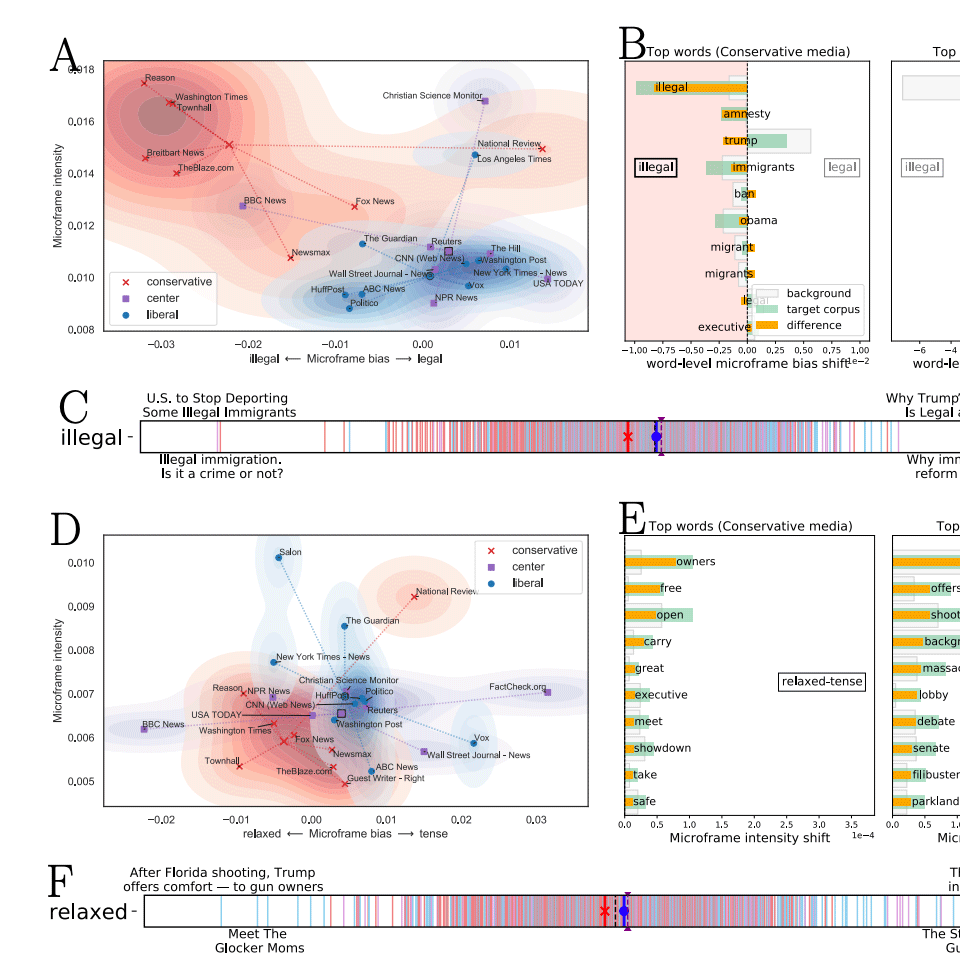
Framing is a process of emphasizing a certain aspect of an issue over the others, nudging readers or listeners towards different positions on the issue even without making a biased argument. Here, we propose FrameAxis, a method for characterizing documents by identifying the most relevant semantic axes (“microframes”) that are overrepresented in the text using word embedding. Our unsupervised approach can be readily applied to large datasets because it does not require manual annotations. …
Haewoon Kwak, Jisun An, Elise Jing, Yong-Yeol Ahn
political science
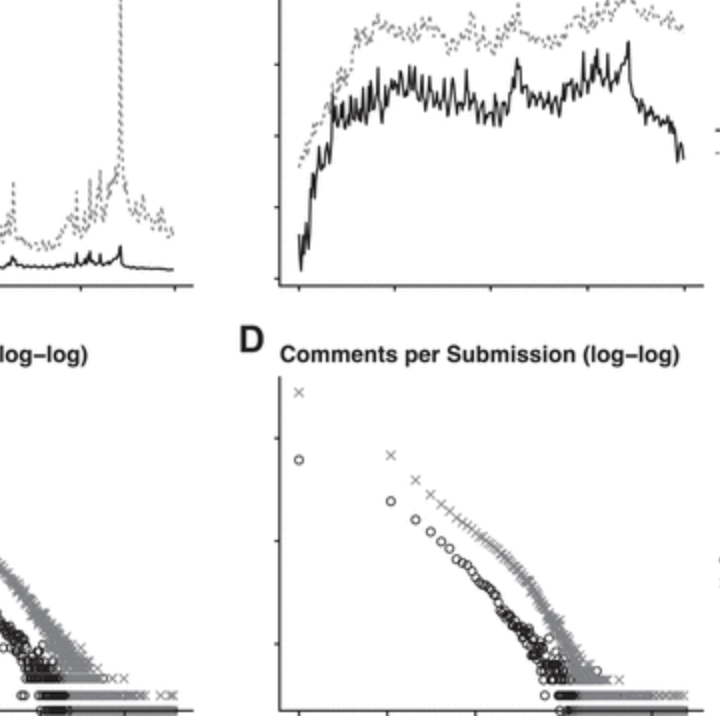
We investigate differences along these dimensions on the online forum Reddit by comparing linguistic patterns and content of comments in two subreddits focusing on a populist, Donald Trump (/r/The_Donald), and a center-left politician, Hillary Clinton (/r/hillaryclinton), during the 2016 U.S. presidential election campaign.
Andreas Jungherr, Oliver Posegga, Jisun An
Social Science Computer Review. March 2021.
AI/ML/NLP user engagement
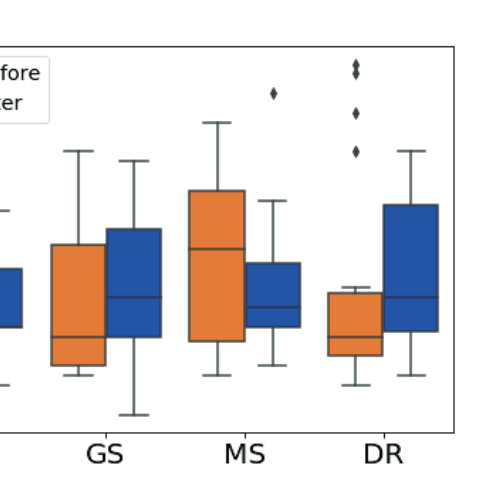
We study two Reddit communities that adopted this scheme, whereby posts include tags identifying education status referred to as flairs, and we examine how the “transferred” social status affects the interactions among the users.
Kunwoo Park, Haewoon Kwak, Hyunho Song, Meeyoung Cha
Proceedings of the 14th International AAAI Conference on Web and Social Media (ICWSM), 2020
AI/ML/NLP online harm
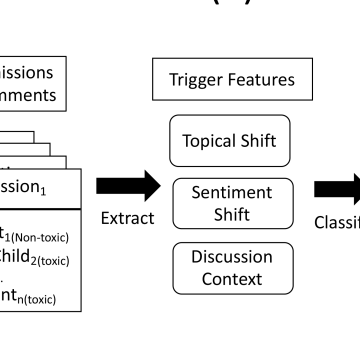
We define toxicity triggers in online discussions as a non-toxic comment that lead to toxic replies. Then, we build a neural network-based prediction model for toxicity trigger.
Hind Almerekhi, Haewoon Kwak, Bernard Jim Jansen, Joni Salminen (short)
Proceedings of The Web Conference (WWW), 2020
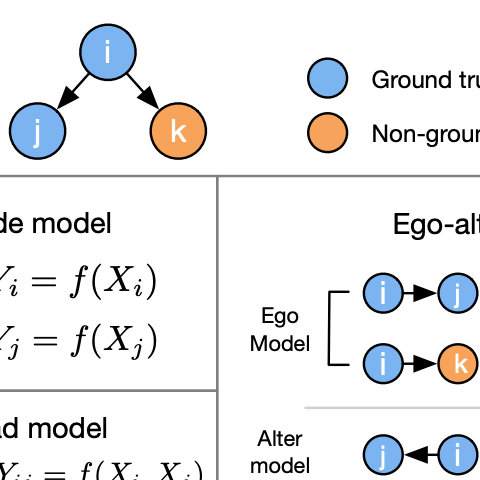
We show that estimating homophily in a network can be viewed as a dyadic prediction problem, and that homophily estimates are unbiased when dyad-level residuals sum to zero in the network. Then, we propose a novel “ego-alter” modeling approach that outperforms standard node and dyad classification strategies.
George Berry, Antonio Sirianni, Ingmar Weber, Jisun An, Michael Macy (preprint)
arXiv preprint arXiv:2001.11171, 2020
bias/fairness
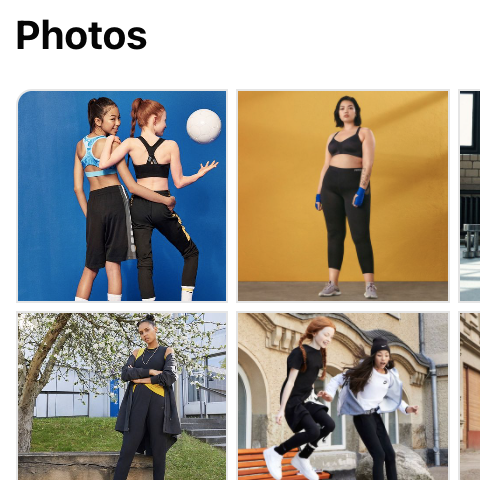
Gender and racial diversity in the mediated images from the media shape our perception of different demographic groups. In this work, we investigate gender and racial diversity of 85,957 advertising images shared by the 73 top international brands on Instagram and Facebook.
Jisun An, Haewoon Kwak
Proceedings of Social Informatics (SocInfo), 2019
Best Paper Award
political science
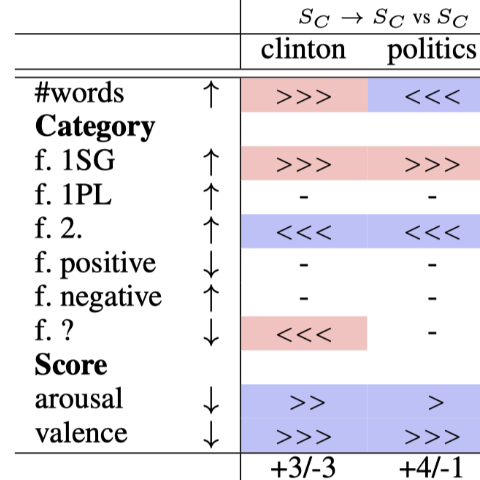
We use Reddit to explore the nature of political discussionsin homogeneous and cross-cutting communication spaces. Inparticular, we develop an analytical template to studyinter-actionandlinguistic patternswithin and between politicallyhomogeneous and heterogeneous communication spaces. Ouranalyses reveal different behavioral patterns in homogeneousand cross-cutting communications spaces.
Jisun An, Haewoon Kwak, Oliver Posegga, Andreas Jungherr
Proceedings of the 13th International AAAI Conference on Web and Social Media (ICWSM), 2019
online harm
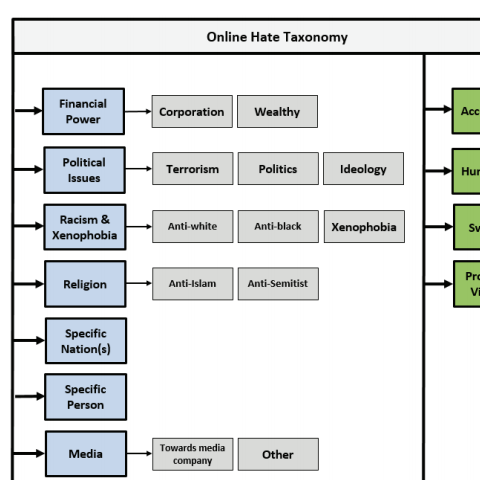
We manually label 5,143 hateful expressions posted to YouTube and Facebook videos among a dataset of 137,098 comments from an online news media. We then create a granular taxonomy of different types and targets of online hate and train machine learning models to automatically detect and classify the hateful comments in the full dataset.
Joni Salminen, Hind Almerekhi, Milica Milenković, Soon-gyo Jung, Jisun An, Haewoon Kwak, Bernard J. Jansen
Proceedings of the 12th International AAAI Conference on Web and Social Media (ICWSM), 2018
game analytics HCI
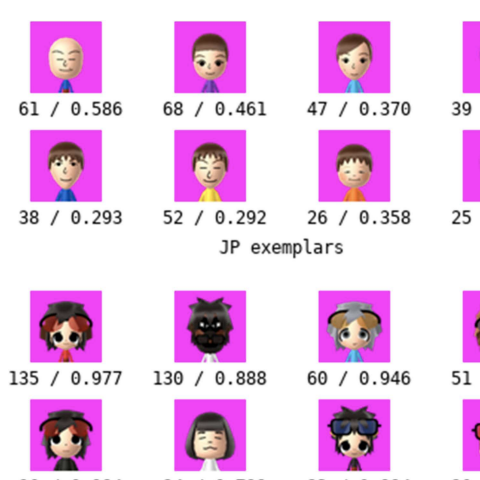
We manually label 5,143 hateful expressions posted to YouTube and Facebook videos among a dataset of 137,098 comments from an online news media. We then create a granular taxonomy of different types and targets of online hate and train machine learning models to automatically detect and classify the hateful comments in the full dataset.
Peter Mawhorter, Sercan Şengün, Haewoon Kwak, D. Fox Harrell
IEEE Transactions on Games, 10(2), 2018
AI/ML/NLP dataset/tool
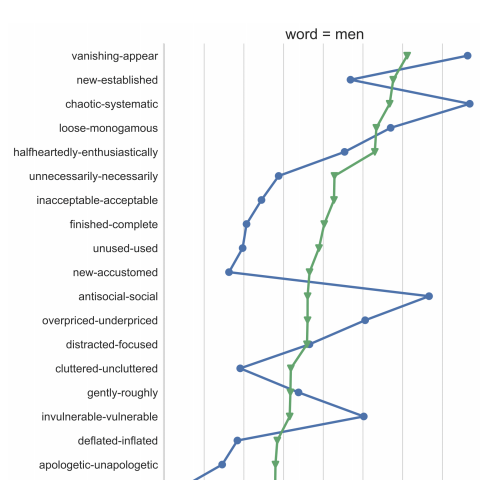
We propose SemAxis, a simple yet powerful framework to characterize word semantics using many semantic axes in word-vector spaces beyond sentiment. We demonstrate that SemAxis can capture nuanced semantic representations in multiple online communities. We also show that, when the sentiment axis is examined, SemAxis outperforms the state-of-the-art approaches in building domain-specific sentiment lexicons.
Jisun An, Haewoon Kwak, Yong-Yeol Ahn
Proceedings of the 56th Annual Meeting of the Association for Computational Linguistics (ACL), 2018
computational journalism network science
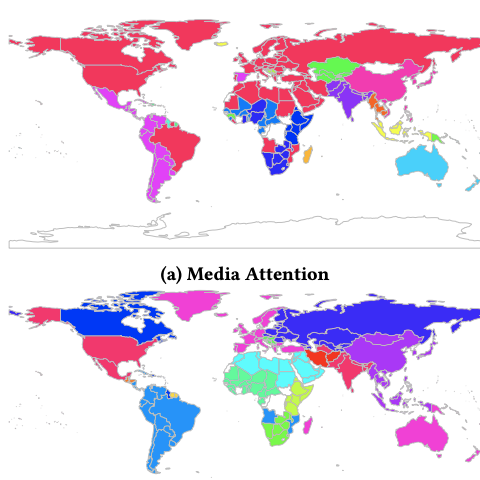
We investigate the alignment of international attention of news media organizations within 193 countries with the expressed international interests of the public within those same countries from March 7, 2016 to April 14, 2017. We collect fourteen months of longitudinal data of online news from Unfiltered News and web search volume data from Google Trends and build a multiplex network of media attention and public attention in order to study its structural and dynamic properties.
Haewoon Kwak, Jisun An, Joni Salminen, Soon-Gyo Jung, Bernard J. Jansen.
Proceedings of the 2018 World Wide Web Conference (WWW), 2018
online harm
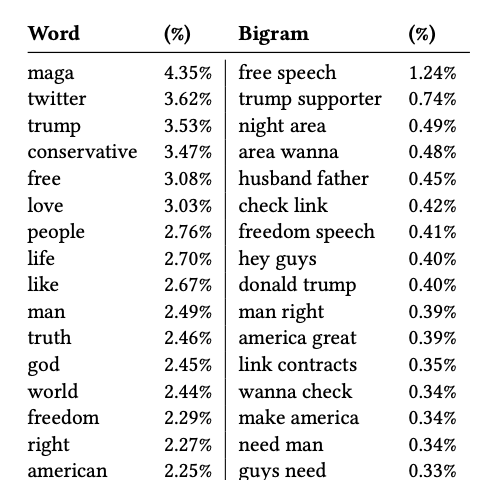
We provide, to the best of our knowledge, the first characterization of Gab. We collect and analyze 22M posts produced by 336K users between August 2016 and January 2018, finding that Gab is predominantly used for the dissemination and discussion of news and world events, and that it attracts alt-right users, conspiracy theorists, and other trolls
Savvas Zannettou, Barry Bradlyn, Emiliano De Cristofaro, Haewoon Kwak, Michael Sirivianos, Gianluca Stringhini, Jeremy Blackburn
Companion Proceedings of the The Web Conference (WWW), 2018
Press coverage-New Scientist, and Vice
game analytics
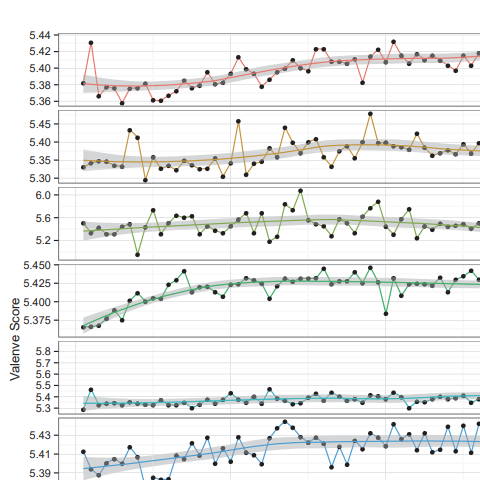
We use player behavior during the closed beta test of the MMORPG ArcheAge as a proxy for an extreme situation-at the end of the closed beta test, all user data is deleted, and thus, the outcome (or penalty) of players’ in-game behaviors in the last few days loses its meaning. We analyzed 270 million records of player behavior in the 4th closed beta test of ArcheAge.
Ah Reum Kang, Jeremy Blackburn, Haewoon Kwak, Huy Kang Kim
Proceedings of the 26th International Conference on World Wide Web (WWW) Companion, 2017
Press coverage-New Scientist, IFL Science, PC Gamer, Massively OK, El Confidencial, Joongang Ilbo, and so on.
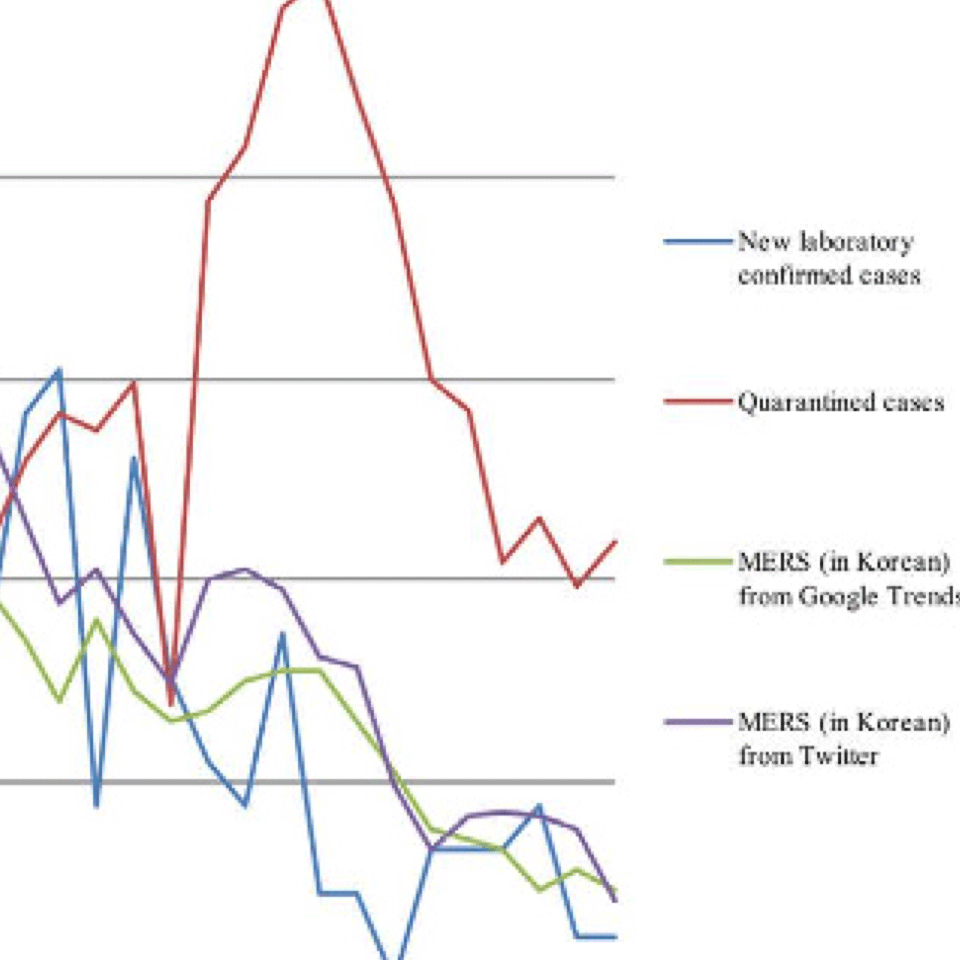
The Middle East respiratory syndrome coronavirus (MERS-CoV) was exported to Korea in 2015, resulting in a threat to neighboring nations. We evaluated the possibility of using a digital surveillance system based on web searches and social media data to monitor this MERS outbreak. We collected the number of daily laboratory-confirmed MERS cases and quarantined cases from May 11, 2015 to June 26, 2015 using the Korean government MERS portal. The daily trends observed via Google search and Twitter during the same time period were also ascertained using Google Trends and Topsy. Correlations among the data were then examined using Spearman correlation analysis.
Soo-Yong Shin, Dong-Woo Seo, Jisun An, Haewoon Kwak, Sung-Han Kim, Jin Gwack, Min-Woo Jo
Scientific Reports 6, Article number 32920 (2016)
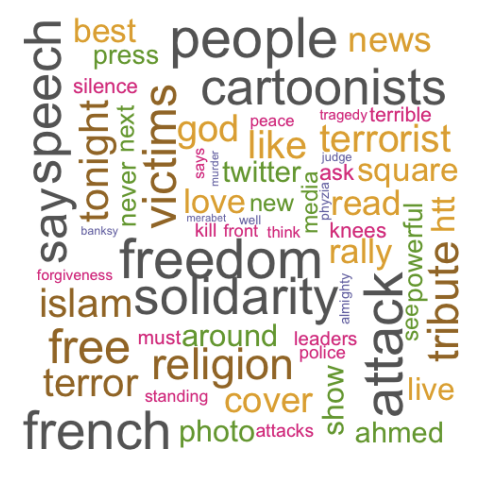
We study the response to the Charlie Hebdo shootings of January 7, 2015 on Twitter across the globe. We ask whether the stances on the issue of freedom of speech can be modeled using established sociological theories, including Huntington’s culturalist Clash of Civilizations, and those taking into consideration social context, including Density and Interdependence theories. We find support for Huntington’s culturalist explanation, in that the established traditions and norms of one’s “civilization” predetermine some of one’s opinion.
Jisun An, Haewoon Kwak, Yelena Mejova, Sonia Alonso Saenz De Oger, Braulio Gomez Fortes
Proceeding of the 10th International Conference on Web and Social Media (ICWSM), 2016
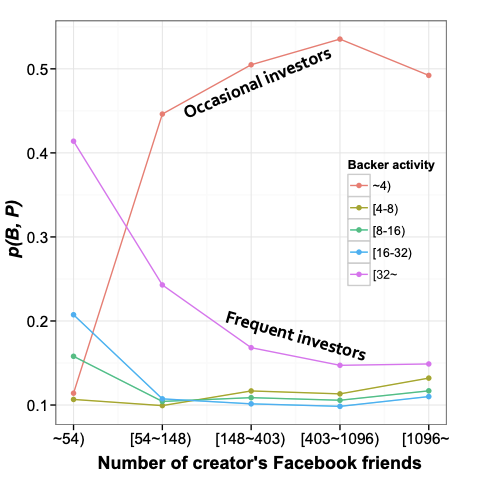
One of the most popular crowdfunding sites is Kickstarter. In it, creators post descriptions of their projects and advertise them on social media sites (mainly Twitter), while investors look for projects to support. We set out to propose different ways of recommending investors found on Twitter for specific Kickstarter projects. We do so by conducting hypothesis-driven analyses of pledging behavior and translate the corresponding findings into different recommendation strategies. The best strategy achieves, on average, 84% of accuracy in predicting a list of potential investors’ Twitter accounts for any given project.
Jisun An, Daniele Quercia, Jon Crowcroft
Proceedings of the 23rd international conference on World wide web (WWW), 2014
Press coverage-FastCompany
network science HCI
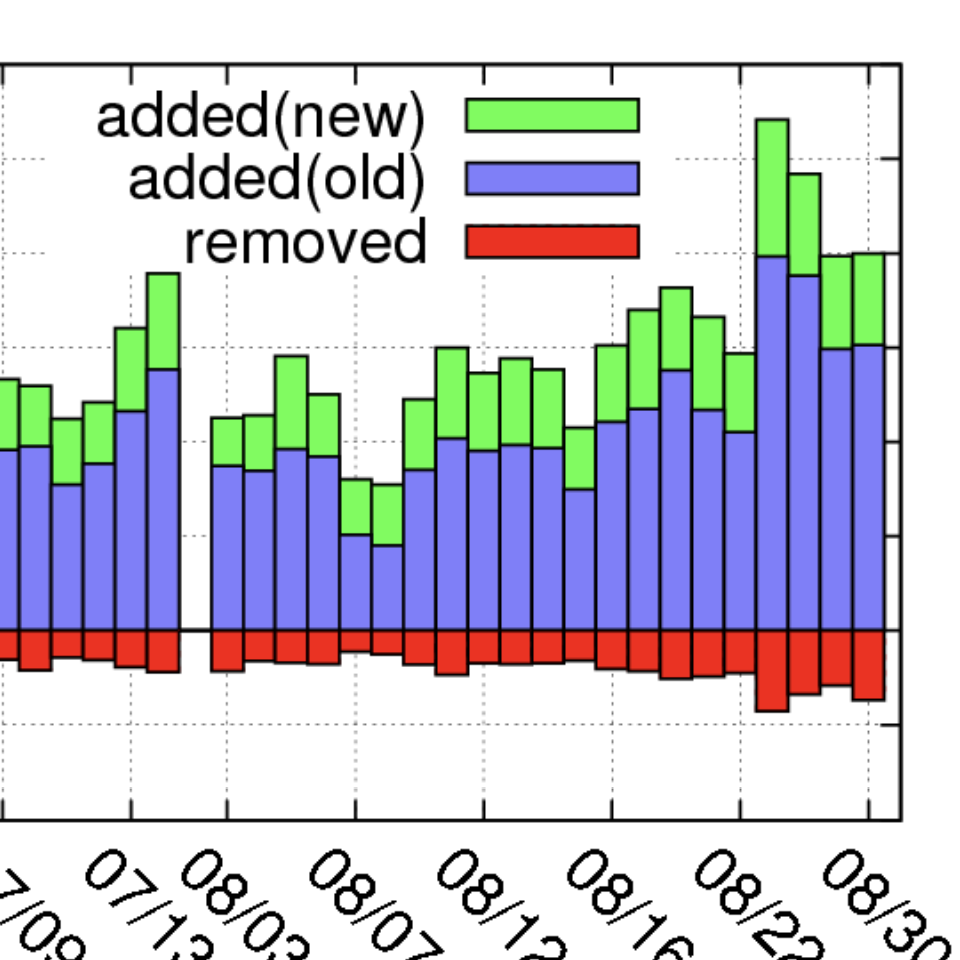
We analyze the dynamics of the behavior known as ‘unfollow’ in Twitter. We collected daily snapshots of the online relationships of 1.2 million Korean-speaking users for 51 days as well as all of their tweets. We found that Twitter users frequently unfollow. We then discover the major factors, including the reciprocity of the relationships, the duration of a relationship, the followees’ informativeness, and the overlap of the relationships, which affect the decision to unfollow. We conduct interview with 22 Korean respondents to supplement the quantitative results.
Haewoon Kwak, Hyunwoo Chun, Sue Moon
Proceedings of the SIGCHI Conference on Human Factors in Computing Systems (CHI), 2011.
Press coverage - Kyunghyang Shinmun
network science
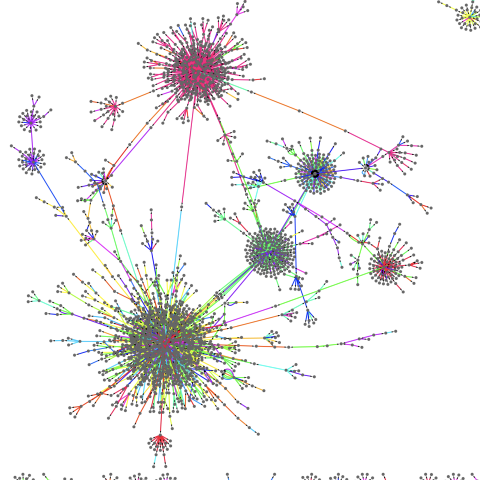
We have crawled the entire Twitter site and obtained 41.7 million user profiles, 1.47 billion social relations, 4,262 trending topics, and 106 million tweets. In its follower-following topology analysis we have found a non-power-law follower distribution, a short effective diameter, and low reciprocity, which all mark a deviation from known characteristics of human social networks [28]. In order to identify influentials on Twitter, we have ranked users by the number of followers and by PageRank and found two rankings to be similar. Ranking by retweets differs from the previous two rankings, indicating a gap in influence inferred from the number of followers and that from the popularity of one’s tweets.
Haewoon Kwak, Changhyun Lee, Hosung Park, Sue Moon
Proceedings of the 19th international conference on World wide web (WWW), 2010.
Press coverage - Mashable Op-Ed, ReadWrite, The Guardian, PC News, Chosun Ilbo, DongA Ilbo
Full List
A semantic embedding space based on large language models for modelling human beliefs
Byunghwee Lee, Rachith Aiyappa, Yong-Yeol Ahn, Haewoon Kwak, Jisun An
Nature Human Behaviour, 2025
Press coverage - Phys.org Featured Article
View-only without paywall (ReadCube)
The Impact of Toxic Trolling Comments on Anti-vaccine YouTube Videos
Kunihiro Miyazaki, Takayuki Uchiba, Haewoon Kwak, Jisun An, Kazutoshi Sasahara
Scientific Reports, 2024
Public Perception of Generative AI on Twitter: An Empirical Study Based on Occupation and Usage
Kunihiro Miyazaki, Taichi Murayama, Takayuki Uchiba, Jisun An, Haewoon Kwak
EPJ Data Science, 2024
Press coverage-Blockchain News
35+ papers citing this work (Google scholar)
Enhancing Spatiotemporal Traffic Prediction through Urban Human Activity Analysis
Sumin Han, Youngjun Park, Minji Lee, Jisun An, Dongman Lee
ACM CIKM, 2023
Wearing Masks Implies Refuting Trump?: Towards Target-specific User Stance Prediction across Events in COVID-19 and US Election 2020
Hong Zhang, Haewoon Kwak, Wei Gao, Jisun An
ACM WebSci, 2023
5+ papers citing this work (Google scholar)
Political Honeymoon Effect on Social Media: Characterizing Social Media Reaction to the Changes of Prime Minister in Japan
Kunihiro Miyazaki, Taichi Murayama, Akira Matsui, Masaru Nishikawa, Takayuki Uchiba, Haewoon Kwak, Jisun An
ACM WebSci, 2023
5+ papers citing this work (Google scholar)
YouNICon: YouTube’s CommuNIty of Conspiracy Videos
Shaoyi Liaw, Fan Huang, Fabricio Benevenuto, Haewoon Kwak, Jisun An
ICWSM Dataset, 2023
5+ papers citing this work (Google scholar)
‘This is Fake News’: Characterizing the Spontaneous Debunking from Twitter Users to COVID-19 False Information
Kunihiro Miyazaki, Takayuki Uchiba, Kenji Tanaka, Jisun An, Haewoon Kwak, Kazutoshi Sasahara
AAAI ICWSM, 2023
10+ papers citing this work (Google scholar)
MAANG? MANGA? Characterizing Spontaneous Ideation Contest on Social Media
Kunihiro Miyazaki, Takayuki Uchiba, Haewoon Kwak, Jisun An
IEEE BigData, 2022 (short)
Modeling Political Activism around Gun Debate via Social Media
Yelena Mejova, Jisun An, Gianmarco De Francisci Morales, Haewoon Kwak
ACM Transactions on Social Computing, 2022
5+ papers citing this work (Google scholar)
Storm the Capitol: Linking Offline Political Speech and Online Twitter Extra-Representational Participation on QAnon and the January 6 Insurrection
Claire Seungeun Lee, Juan Merizalde, John D. Colautti, Jisun An and Haewoon Kwak
Frontiers in Sociology, 2022
Press coverage-PsyPost
35+ papers citing this work (Google scholar)
Understanding Toxicity Triggers on Reddit in the Context of Singapore
Yun Yu Chong, Haewoon Kwak
Proceedings of the 16th International AAAI Conference on Web and Social Media (ICWSM), 2022 (short)
Press coverage-AI Ethics Brief Newsletter by Montreal AI Ethics Institute
20+ papers citing this work (Google scholar)
Predicting Anti-Asian Hateful Users on Twitter during COVID-19
Jisun An, Haewoon Kwak, Claire Seungeun Lee, Bogang Jun, Yong-Yeol Ahn
Findings of the Association for Computational Linguistics EMNLP 2021
Code repo (github)
30+ papers citing this work (Google scholar)
FrameAxis: characterizing microframe bias and intensity with word embedding
Haewoon Kwak, Jisun An, Elise Jing, Yong-Yeol Ahn
PeerJ Computer Science 7:e644, 2021
Code repo (github)
35+ papers citing this work (Google scholar)
Populist Supporters on Reddit: A Comparison of Content and Behavioral Patterns Within Publics of Supporters of Donald Trump and Hillary Clinton
Andreas Jungherr, Oliver Posegga, Jisun An
Social Science Computer Review. March 2021.
15+ papers citing this work (Google scholar)
“Trust Me, I Have a Ph.D.”: A Propensity Score Analysis on the Halo Effect of Disclosing One’s Offline Social Status in Online Communities
Kunwoo Park, Haewoon Kwak, Hyunho Song, Meeyoung Cha
Proceedings of the 14th International AAAI Conference on Web and Social Media (ICWSM), 2020
15+ papers citing this work (Google scholar)
Are These Comments Triggering? Predicting Triggers of Toxicity in Online Discussions
Hind Almerekhi, Haewoon Kwak, Bernard Jim Jansen, Joni Salminen (short)
Proceedings of The Web Conference (WWW), 2020
50+ papers citing this work (Google scholar)
Going beyond accuracy: estimating homophily in social networks using predictions
George Berry, Antonio Sirianni, Ingmar Weber, Jisun An, Michael Macy (preprint)
arXiv preprint arXiv:2001.11171, 2020
Gender and Racial Diversity in Commercial Brands’ Advertising Images on Social Media
Jisun An, Haewoon Kwak
Proceedings of Social Informatics (SocInfo), 2019
Best Paper Award
20+ papers citing this work (Google scholar)
Detecting Toxicity Triggers in Online Discussions
Hind Almerekhi, Haewoon Kwak, Bernard Jim Jansen, Joni Salminen (poster)
Proceedings of the 30th ACM Conference on Hypertext and Social Media (HT), 2019
40+ papers citing this work (Google scholar)
Political Discussions in Homogeneous and Cross-Cutting Communication Spaces
Jisun An, Haewoon Kwak, Oliver Posegga, Andreas Jungherr
Proceedings of the 13th International AAAI Conference on Web and Social Media (ICWSM), 2019
65+ papers citing this work (Google scholar)
Anatomy of Online Hate: Developing a Taxonomy and Machine Learning Models for Identifying and Classifying Hate in Online News Media
Joni Salminen, Hind Almerekhi, Milica Milenković, Soon-gyo Jung, Jisun An, Haewoon Kwak, Bernard J. Jansen
Proceedings of the 12th International AAAI Conference on Web and Social Media (ICWSM), 2018
140+ papers citing this work (Google scholar)
Identifying Regional Trends in Avatar Customization
Peter Mawhorter, Sercan Şengün, Haewoon Kwak, D. Fox Harrell
IEEE Transactions on Games, 10(2), 2018
SemAxis: A Lightweight Framework to Characterize Domain-Specific Word Semantics Beyond Sentiment
Jisun An, Haewoon Kwak, Yong-Yeol Ahn
Proceedings of the 56th Annual Meeting of the Association for Computational Linguistics (ACL), 2018
50+ papers citing this work (Google scholar)
What We Read, What We Search: Media Attention and Public Attention among 193 Countries
Haewoon Kwak, Jisun An, Joni Salminen, Soon-Gyo Jung, Bernard J. Jansen.
Proceedings of the 2018 World Wide Web Conference (WWW), 2018
20+ papers citing this work (Google scholar)
What is Gab? A Bastion of Free Speech or an Alt-Right Echo Chamber?
Savvas Zannettou, Barry Bradlyn, Emiliano De Cristofaro, Haewoon Kwak, Michael Sirivianos, Gianluca Stringhini, Jeremy Blackburn
Companion Proceedings of the The Web Conference (WWW), 2018
Press coverage-New Scientist, and Vice
280+ papers citing this work (Google scholar)
I Would Not Plant Apple Trees If the World Will Be Wiped: Analyzing Hundreds of Millions of Behavioral Records of Players During an MMORPG Beta Test
Ah Reum Kang, Jeremy Blackburn, Haewoon Kwak, Huy Kang Kim
Proceedings of the 26th International Conference on World Wide Web (WWW) Companion, 2017
Press coverage-New Scientist, IFL Science, PC Gamer, Massively OK, El Confidencial, Joongang Ilbo, and so on.
10+ papers citing this work (Google scholar)
High correlation of Middle East respiratory syndrome spread with Google search and Twitter trends in Korea
Soo-Yong Shin, Dong-Woo Seo, Jisun An, Haewoon Kwak, Sung-Han Kim, Jin Gwack, Min-Woo Jo
Scientific Reports 6, Article number 32920 (2016)
130+ papers citing this work (Google scholar)
Are You Charlie or Ahmed? Cultural Pluralism in Charlie Hebdo Response on Twitter
Jisun An, Haewoon Kwak, Yelena Mejova, Sonia Alonso Saenz De Oger, Braulio Gomez Fortes
Proceeding of the 10th International Conference on Web and Social Media (ICWSM), 2016
45+ papers citing this work (Google scholar)
#greysanatomy vs. #yankees: Demographics and Hashtag Use on Twitter.
Jisun An, Ingmar Weber (short)
Proceeding of the 10th International Conference on Web and Social Media (ICWSM), 2016
Whom should we sense in ‘social sensing’-analyzing which users work best for social media now-casting
Jisun An, Ingmar Weber
EPJ Data Science, 4, Article number 22, 2015
Has Much Potential but Biased: Exploring the Scholarly Landscape in Twitter
Haewoon Kwak, Jonggun Lee (poster)
Proceedings of the 23rd International Conference on World Wide Web Companion, 2014
Recommending investors for crowdfunding projects
Jisun An, Daniele Quercia, Jon Crowcroft
Proceedings of the 23rd international conference on World wide web (WWW), 2014
Press coverage-FastCompany
100+ papers citing this work (Google scholar)
Structures of Broken Ties: Exploring Unfollow Behavior on Twitter
Bo Xu, Yun Huang, Haewoon Kwak, Noshir S. Contractor
Proceedings of the 16th ACM Conference on Computer Supported Cooperative Work and Social Computing (CSCW), 2013
70+ papers citing this work (Google scholar)
Why Individuals Seek Diverse Opinions (or Why They Don’t)
Jisun An, Daniele Quercia, Jon Crowcroft
Proceedings of the 5th Annual ACM Web Science Conference (WebSci), 2013
Why Do I Retweet It? An Information Propagation Model for Microblogs
Fabio Pezzoni, Jisun An, Andrea Passarella, Jon Crowcroft, Marco Conti
Proceedings of the 5th International Conference on Social Informatics (SocInfo), 2013
More of a Receiver than a Giver: Why Do People Unfollow in Twitter?
Haewoon Kwak, Sue Moon, Wonjae Lee (4 page poster)
Proceedings of the 6th International AAAI Conference on Weblogs and Social Media (ICWSM), 2012
50+ papers citing this work (Google scholar)
Fragile Online Relationship: a First Look at Unfollow Dynamics in Twitter
Haewoon Kwak, Hyunwoo Chun, Sue Moon
Proceedings of the SIGCHI Conference on Human Factors in Computing Systems (CHI), 2011.
Press coverage - Kyunghyang Shinmun
150+ papers citing this work (Google scholar)
What is Twitter, a Social Network or a News Media?
Haewoon Kwak, Changhyun Lee, Hosung Park, Sue Moon
Proceedings of the 19th international conference on World wide web (WWW), 2010.
Press coverage - Mashable Op-Ed, ReadWrite, The Guardian, PC News, Chosun Ilbo, DongA Ilbo
10k+ papers citing this work (Google scholar)
Analyzing the Video Popularity Characteristics of Large-Scale User Generated Content Systems
Meeyoung Cha, Haewoon Kwak, Pablo Rodriguez, Yong-Yeol Ahn, and Sue Moon
ACM/IEEE Transactions on Networking, Vol 17, Issue 5, 2009
600+ papers citing this work (Google scholar)
Comparison of Online Social Relations in Volume vs Interaction: A Case Study of Cyworld
Hyunwoo Chun, Haewoon Kwak, Young-Ho Eom, Yong-Yeol Ahn, Sue Moon, and Hawoong Jeong
Proceedings of the 8th ACM SIGCOMM conference on Internet measurement (IMC), 2008
250+ papers citing this work (Google scholar)
I Tube, You Tube, Everybody Tubes: Analyzing the World’s Largest User Generated Content Video System
Meeyoung Cha, Haewoon Kwak, Pablo Rodriguez, Yong-Yeol Ahn, Sue Moon
Proceedings of the 7th ACM SIGCOMM conference on Internet measurement (IMC), 2009
Best paper award, The IMC Test of Time Award
2,200+ papers citing this work (Google scholar)
Analysis of topological characteristics of huge online social networking services
Yong-Yeol Ahn, Seungyeop Han, Haewoon Kwak, Sue Moon, Hawoong Jeong
Proceedings of the 16th international conference on World Wide Web (WWW), 2007